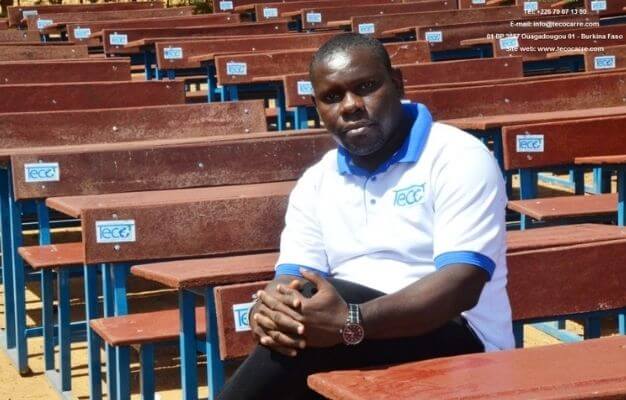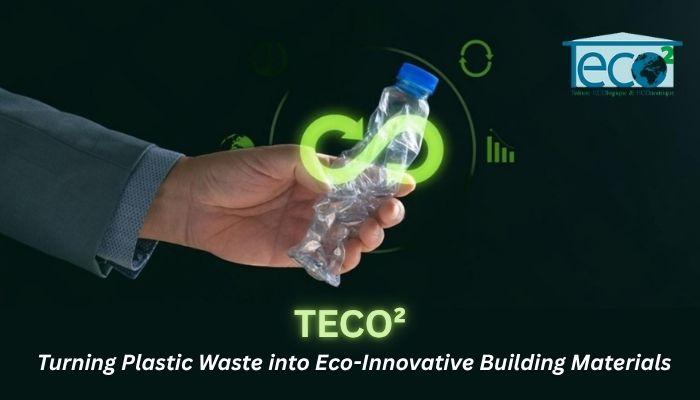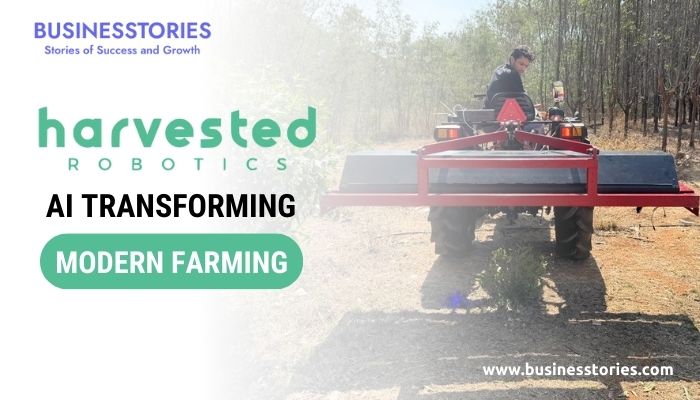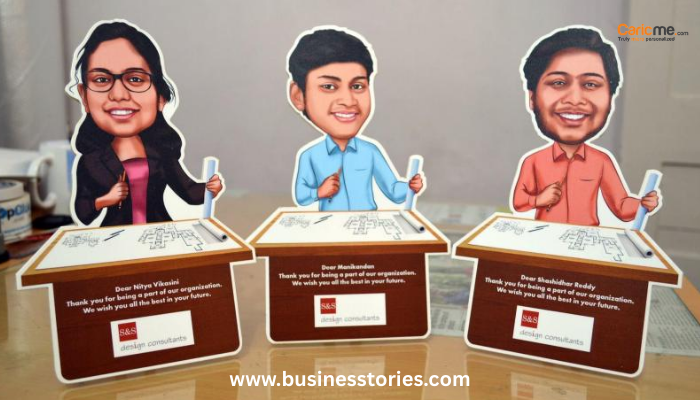Innovation in the Face of Plastic Pollution
When plastic pollution meets housing shortages in the centre of Burkina Faso, a bold new solution is rising—TECO². An eco-innovative startup created by environmental engineer Calvin Tiam, who is changing how we perceive waste plastic on the construction site, to give new value being tossed away and the meaning of durability for longer times. From roofing tiles to school furniture, TECO² is proving that sustainability and innovation can go hand in hand. At a time when African cities are growing rapidly and facing more environmental challenges than ever before, TECO² is a thought experiment that has finally become reality—a realisation of the potential for circular economy thinking to change lives through its example: one recycled panel at a time.
The Problem: Plastic Waste and Urban Growth Collide
Burkina Faso, like many countries in Sub-Saharan Africa, faces a dual crisis:
- Plastic waste is ubiquitous, with minimal formal recycling infrastructure.
- Urbanization and a lack of affordable housing are driving the demand for inexpensive building supplies.
Drains get choked with plastic packaging, such as polyethylene bags and bottles; rivers are polluted, and urban garbage dumps stand as mountain ranges of junk. However, materials like cement, iron sheets, and imported tiles are still very expensive for the majority of those in low-income homes.
Calvin Tiam saw an opportunity to address both challenges simultaneously.
Also Read: How to Start a Waste Management Business: A Complete Guide for 2025
The Founder: Engineering for Environmental Justice

With a background in environmental engineering and waste management, Calvin was well-acquainted with the consequences of unmanaged plastic. But instead of working in the margins of cleanup efforts, he set his sights on value creation.
Inspired by models of circular economy innovation across the continent, Calvin founded TECO² (Technologie Écologique) in 2018 with a simple but powerful mission:
“To transform waste into opportunity, pollution into products, and problems into profits.”
His goal? Create a scalable model that recycles plastic into practical, affordable, and sustainable construction materials accessible to the masses.
The Solution: Transforming Waste into Housing Solutions
TECO² collects plastic waste from landfills, households, and businesses. After a thorough cleaning and shredding process, the plastic is melted and molded into:
- Plastic Roof Tiles: Lightweight, water-resistant, heat-reflective, and durable for up to 30 years.
- Floor and Wall Tiles: Designed with interlocking systems, ideal for low-cost housing.
- Modular Furniture: Including benches, shelves, and school desks made from 100% recycled plastic.
Unlike conventional materials that require cement or metal, TECO²’s products are:
- More affordable (30–50% cheaper)
- Resistant to termites, moisture, and corrosion
- Easy to install with minimal labor
- Thermally efficient, helping keep homes cool in Burkina Faso’s intense heat
These innovations are especially valuable in rural and peri-urban areas, where access to quality building materials is scarce.
Impact Metrics That Matter
Since its inception, TECO² has recorded significant social, environmental, and economic outcomes:
- Over 100 tonnes of plastic waste recycled
- More than 1,200 roofing panels produced
- Projects in over 10 municipalities across Burkina Faso
- 30+ jobs created, including waste collectors, factory workers, and distributors
- Partnerships with schools to supply eco-desks made from recycled plastic
TECO² also collaborates with women-led cooperatives and informal waste pickers, creating an inclusive value chain that benefits vulnerable communities.
Funding and Recognition
In 2021, TECO² secured a seed grant of €60,000 from Investisseurs & Partenaires (I&P), a well-known impact investment firm in West Africa. The funds helped the startup scale operations, improve manufacturing equipment, and expand its product line.
The startup has since been featured in regional innovation showcases and was a finalist in multiple green innovation competitions, including the Sahel Climate Innovation Awards.
TECO²’s story has also gained traction with global sustainability platforms that recognize the startup as a model for grassroots circular economy innovation.
Sustainability, Circularity, and Scalability
TECO²’s model is grounded in sustainable development principles:
- Environmental: Reduces plastic pollution, conserves natural resources, and lowers construction emissions.
- Social: Provides affordable materials for low-income housing and dignified employment opportunities.
- Economic: Reduces import dependence and stimulates local industry.
By creating a closed-loop system where waste becomes input, TECO² exemplifies the circular economy in action.
Looking ahead, the company aims to:
- Expand to neighboring countries in the Sahel region
- Launch a training program for youth and artisans in eco-construction
- Collaborate with NGOs and municipalities for public housing projects using recycled materials
Challenges and Resilience
Despite its success, TECO² has faced several challenges:
- Limited access to consistent power supply affects production cycles
- High transportation costs for waste collection and distribution
- Market education is needed to shift perceptions around “plastic” building materials
- Regulatory gaps in waste management policies limit incentives for recycling startups
To address these issues, TECO² is advocating for better public-private partnerships, exploring solar-powered manufacturing, and engaging in community outreach to build trust and acceptance.
Customer Testimonials: Building Trust Through Quality
One satisfied customer, a school director in Bobo-Dioulasso, shares:
“The desks we received from TECO² are not only sturdy but also environmentally friendly. We are proud to be part of a solution that educates and protects the planet.”
Another homeowner in Ouagadougou noted:
“I was skeptical at first, but the roofing tiles are excellent. They do not rust, they keep the house cooler, and they were much cheaper than metal sheets.”
Such testimonials are vital in breaking stigma and demonstrating the value of sustainable alternatives.
Also Read: Eco-Friendly Software Solutions Promoting Green Tech
A Blueprint for Africa’s Green Construction Future
TECO² is not just a startup—it is a blueprint for green industrialization in Africa. By tackling plastic pollution and housing needs through innovation, the company proves that sustainability and profitability can go hand in hand.
In a continent where urbanization is accelerating and climate risks are intensifying, eco-entrepreneurship like that of TECO² is not just desirable—it is essential.
Connect with TECO²
- Founder: Calvin Tiam
- Website: www.teco2-bf.com
- Email: info@teco2-bf.com
- Location: Ouagadougou, Burkina Faso
Conclusion: Building the Future from What We Throw Away
TECO² is proof that one person’s trash can become another’s treasure—and a community’s opportunity. As Africa looks to sustainable solutions for its urban and environmental challenges, ventures like TECO² light the way.
From discarded plastic to durable homes, TECO² is building more than materials; it is building hope, dignity, and resilience.
Whether you are a policymaker, investor, or conscious consumer, TECO²’s journey invites us all to reimagine waste as a resource and innovation as a tool for lasting impact.





1 thought on “TECO²: Turning Plastic Waste into Eco-Innovative Building Materials”
Comments are closed.